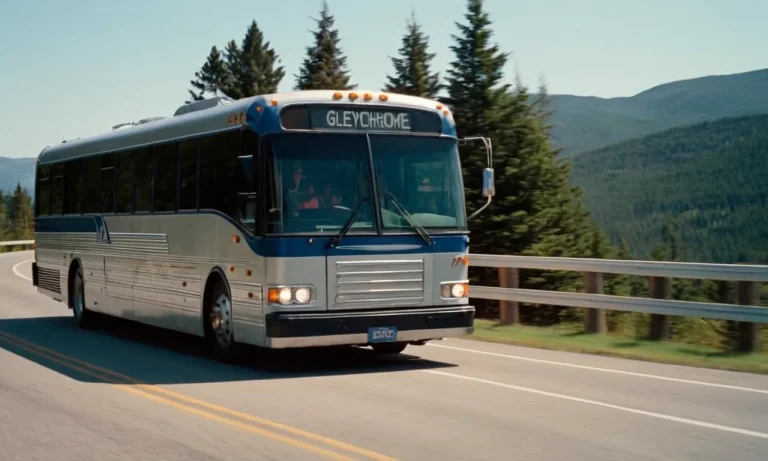Hitting the open road often involves navigating the financial hurdles of car rentals. But what if you could skip the hefty deposit and enjoy the freedom of the highway without the financial stress?
While the answer isn’t a definitive “yes” across the board, understanding how deposit policies work and exploring alternative options can unlock a world of flexible car rental experiences.
Short on time? No car rental company completely eliminates deposits. However, some offer waivers or alternative methods to secure your rental, depending on various factors like insurance coverage, membership programs, and qualifying circumstances.
Dive deeper to discover the nuances of deposit-free car rentals and find the perfect fit for your next adventure.
This comprehensive guide delves into the fascinating world of deposit-free car rentals, exploring:
Demystifying Deposits: Understanding the Why and How
Deposit Fundamentals: Why Do Car Rental Companies Require Them?
Car rental companies require deposits for a few key reasons:
- To cover potential damages – If the rental car is damaged or stolen, the deposit helps pay for repairs or replacement.
- As a credit check – The deposit acts as a verification that renters can pay for the rental upfront.
- For no-shows – If someone reserves a car but never shows up, the deposit helps recoup lost revenue.
Basically, deposits protect the rental company from financial losses.
The typical deposit amount is $200-$900, authorized on a credit card but not actually charged unless there’s an issue.
Types of Deposits: Understanding the Different Options
There are a few common types of rental car deposits:
- Standard deposit – This is held on a credit card but not charged upfront.
- Non-refundable deposit – A set fee charged at booking and non-refundable if the reservation is cancelled.
- Debit card deposit – Some companies accept debit card deposits, usually requiring a credit check.
- Cash deposit – Rarely accepted, but some locations may allow a cash deposit instead of a credit card.
The standard credit card deposit is most typical, allowing the reservation to be held without an upfront charge.
Hidden Costs: Beyond the Deposit – Insurance and Additional Fees
While the deposit seems like the major upfront cost, there can be other hidden fees to watch for when renting a car:
- Insurance – Rental insurance can add $10-$30 per day, but may be required if your own insurance doesn’t cover rentals.
- Airport fees – Renting from the airport often adds extra taxes and concession fees.
- One-way rental fees – Returning the car to a different location can incur fees up to a few hundred dollars.
- Upgrades – Adding extras like GPS or car seats can rack up fees.
Always read the full rental contract to avoid surprises. Third party booking sites don’t always include all the details upfront.
The Impact of Credit Scores: How Your Credit Affects Deposit Requirements
In most cases, your credit score affects whether you have to pay a deposit and how much it is:
| Credit Score | Typical Deposit |
| 800+ | No deposit |
| 700-799 | $200-$300 |
| 600-699 | $400-$500 |
| Below 600 | Deposit not accepted |
Those with excellent credit (scores above 800) can often forego a deposit completely. Scores below 600 may not be accepted at all by some rental companies.
Besides your credit score, factors like rental history, income, and age can also impact deposit requirements. Improving your credit and financial profile can help lower deposits over time.
Unlocking the Door: Exploring Alternatives to Deposits
Credit Card Magic: Leverage Cards with Rental Car Coverage
Many credit cards offer rental car insurance as a built-in perk.
Check if your credit card provides primary coverage for rental cars – this means you can decline the rental company’s insurance and pay with your card instead.
This allows you to avoid paying hefty deposits, which can range from $200-$900.
Keep in mind that coverage details vary, so confirm the terms with your credit card company. Using a card with rental coverage essentially makes your credit card the deposit.
Popular cards that offer primary rental car insurance include:
- Chase Sapphire Reserve and Preferred
- American Express Platinum and Gold
- Citi Premier
Leveraging the right credit card is one of the smartest ways to skip deposits. Just don’t forget to charge all rental expenses to the card!
Membership Power: Utilize Loyalty Programs and Partnerships
Joining free rental car loyalty programs like Alamo Insiders, Hertz Gold Plus Rewards, National Emerald Club, etc. can waive deposit requirements.
Elite status levels in these programs often come with the perk of no deposit rentals.
Partnerships between rental companies and hotel/airline programs like Marriott Bonvoy, Delta SkyMiles also offer enrollment levels that can remove deposits.
Even just being a member in these programs helps avoid deposits. Enroll before your next rental for the easiest way to skip deposits through status.
Prepayment Perks: Paying Upfront for Savings and Deposit Waiver
Prepaying for your rental upfront instead of at pickup lets you avoid a deposit. Rental companies use the prepaid amount as your deposit.
Options include:
- Prepay when booking online – pay the estimated total rental cost upfront.
- Pay Now rates – select discount rates that require upfront payment.
- Prepaid fuel purchase – buy a full tank of gas when booking.
While prepaid rentals often can’t be canceled, the deposit waiver makes up for the loss in flexibility. Prepayment also locks in rates unaffected by last minute price hikes.
Paying ahead of time can save up to 25% off base rates.
Short-Term Advantage: Renting for Shorter Periods for Deposit Flexibility
Rental car companies often waive deposits for shorter rentals – think a day or two. Weekend and weekday rentals tend to offer more deposit flexibility than week-long rentals.
For example:
| Rental Length | Deposit Required? |
| 1-2 days | No |
| 3-5 days | Yes |
| 1 week | Yes |
Last-minute one or two day rentals can help avoid deposits. Just remember convenience comes at the cost of higher daily rates.
Short fast rentals are great for occasional driving needs.

Case Studies: Examining Specific Car Rental Companies
Navigating National Brands: Enterprise, Alamo, and Hertz Deposit Options
When it comes to major national car rental brands, policies around deposits can vary. Enterprise, the largest rental car company in the world, typically requires a deposit of $200-300 depending on the vehicle class.
This deposit is waived for Enterprise Plus and Executive Elite members.
Alamo also requires a standard deposit of $200-$300 unless you are an Emerald Club member which waives the deposit requirement.
Hertz has a similar policy, with a standard deposit of $200-$300 for most rentals.
Hertz Gold Plus Rewards members can have this deposit waived by reaching a certain status level.
Overall, when renting from these big national brands, being a member of their loyalty program is the best way to avoid paying a deposit.
Budget-Friendly Solutions: Exploring Payless, Dollar, and Thrifty Policies
For those looking for more budget-friendly rental options, the Avis Budget Group brands of Payless, Dollar, and Thrifty can be a good bet.
Payless and Dollar both list “no deposit required” right on their main website pages, making them ideal choices for deposit-free rentals.
Thrifty also waives deposits for Thrifty Blue Chip members who reach a certain tier.
One key benefit of these chains is that they still offer the convenience of airport and local neighborhood pick-up locations.
Luxury Experiences: Deposit Policies at Avis, Sixt, and Budget
When you need a luxury, sports, or convertible car rental, Avis, Sixt, and Budget are good options to consider.
Avis Preferred members who have completed at least two rentals can waive the deposit requirement completely.
Sixt also offers deposit-free rentals for Sixt Express members after completing their first rental.
For Budget, the Buzz Rewards program allows members reaching Platinum status to bypass deposits.
One key perk of these brands is that they offer higher-end car models like BMW, Mercedes, Porsche, and Tesla vehicles that you often can’t find at other companies.
Just make sure to enroll in their membership programs first to skip the deposit.
Local Heroes: Uncovering Deposit-Free Options in Your Area
Lastly, don’t overlook smaller local and regional car rental companies in your area. These local brands can be an excellent choice when you want to avoid a deposit.
For example, Journey Rent-A-Car in South Florida lists “No credit card deposit required” right on its homepage.
Regional chains like Pacific Rent-A-Car in the western U.S. also advertise no deposit rentals.
The benefit of local companies is that they may be more flexible and willing to work with customers on waiving traditional deposit requirements.
Be sure to inquire about deposit policies and any membership programs that could help you skip the deposit when renting locally.
Weighing the Pros and Cons: Making an Informed Decision
Financial Advantages: Avoiding Deposit Costs and Cash Flow Flexibility
Skipping the rental deposit can provide multiple financial benefits for consumers. First and foremost, avoiding an upfront deposit that is typically $200-$500 can improve cash flow flexibility.
Renters get to hold onto those extra funds during the rental period rather than having it tied up as a deposit.
Convenience Factor: Faster Rental Process and Simplified Booking
Booking a car rental without a deposit greatly simplifies the process.
There’s no need to worry about paying a deposit upfront and then waiting for it to be refunded after the vehicle is returned.
The entire experience is smoother and faster from start to finish.
Some services also allow same day booking, unlike traditional agencies which often require advance notice. The convenience factor is a major perk for many renters.
Potential Challenges: Understanding Restrictions and Avoiding Hidden Fees
However, there can be some drawbacks to skipping the deposit as well.
Many no-deposit rental companies have stricter qualification requirements, including minimum age and driving experience thresholds.
There may also be restrictions on eligible vehicle types or rental locations.
It’s important to read the fine print to avoid unexpectedly high fees. For example, some vendors charge non-refundable cancellation or modification fees.
Renters should weigh factors like limited mileage, early return penalties, and surcharges when comparing options.
Comparing Options: Choosing the Right Method for Your Needs
When deciding between a traditional or no-deposit car rental, consider variables like rental length, vehicle type, location, and individual budget and convenience factors.
Bigger vehicle classes like SUVs and minivans typically require deposits.
Evaluate all policies and rate structures before booking. The best choice depends on the specifics of each rental situation and individual priorities.
Hitting the Road with Confidence: Tips for a Deposit-Free Experience
Research and Compare: Find the Best Deal and Deposit-Free Options
With so many car rental companies to choose from, doing your research is key to finding the best deposit-free deal.
Focus your search on national chains like Enterprise, Hertz, and Avis, which commonly offer deposit-free rentals. Local and regional companies may also be deposit-free.
Compare rates, vehicle options, mileage limits, fees, and insurance to find the perfect match for your trip.
Read the Fine Print: Understand Terms and Conditions Before Booking
Before confirming your rental, carefully read the terms and conditions for details on deposits, qualifications, and restrictions.
Some companies require a credit card hold in place of a cash deposit, while others simply run a credit check. Be sure you meet age, license, and credit requirements.
There may be limitations on vehicle types or mileage. Understanding the fine print is crucial for a smooth, deposit-free rental.
Insurance Coverage: Ensure Adequate Protection for Peace of Mind
Even with a deposit-free rental, you’ll likely need to show proof of insurance. Many companies include basic liability insurance but exclude damage to the rental car.
Be prepared to show your personal car insurance policy and/or consider the rental company’s supplemental coverage for damage and theft.
This provides peace of mind on the road. Without adequate insurance, you may be charged large sums for any rental car damage.
Be Prepared: Have Necessary Documents and Payment Methods Ready
To ensure a quick and seamless rental pickup, come prepared with necessary documents and payment.
Have a printed or digital copy of your reservation confirmation, driver’s license, and proof of insurance readily available. Most companies require a major credit card for payment.
Debit cards may also be accepted. Arriving organized with all required documentation and payment will make the pickup process efficient and headache-free.
Conclusion
While completely eliminating car rental deposits may not be universal, understanding the various options and navigating the nuances of alternative methods empowers you to hit the road with confidence.
By exploring deposit-free possibilities, comparing offers, and making informed decisions, you can unlock a world of adventure without the financial burden.
So, buckle up, explore the possibilities, and enjoy the freedom of the open road, deposit-free!






